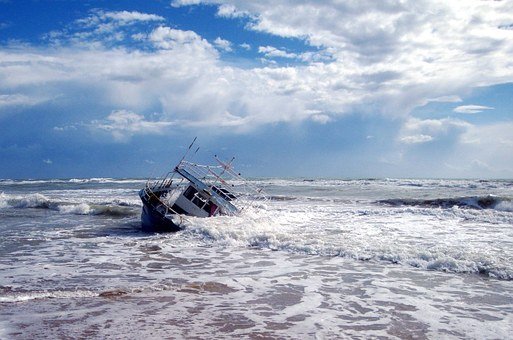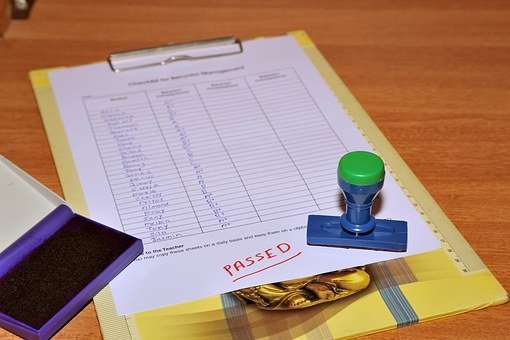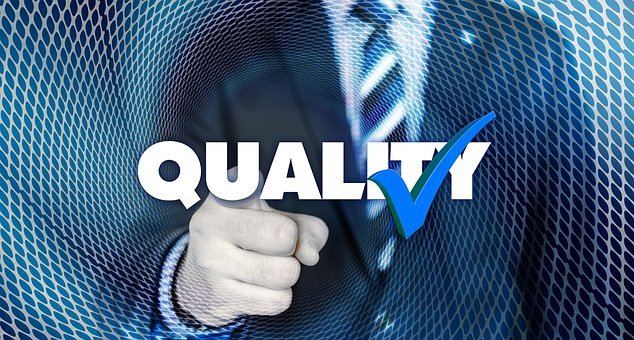I've been largely silent about the situation with VIVA and Tradeqwik. However, there comes a point where my views are probably pretty close to done evolving and that's a good time to say something about it, especially publicly.
I'm not going to rehash or analyze the situation itself in this article. Lots of others who were involved have done so. The summary is that a few people had a really cool idea, wrote and disseminated a nice white paper, produced a few good looking websites, launched a couple of ICOs, made a bunch of promises about cutting edge development... and then... stuff happened, and it all came to a screeching halt which was preceded by a lengthy time of complete noncommunication.

Looking back, the pattern is quite typical of projects which turn out to be scams. Whether it began as a scam or started off with good intentions and then devolved into one matters little because the end result is that anyone who bought into it is looking at a total loss. There is still talk about audits and possible reimbursement of funds that were actually held on the Tradeqwik exchange, but I'm skeptical of much coming out of that. Certainly investment funds are no longer with us, having likely been spent in ways the investors would have neither anticipated nor supported. None of that is proven, but it fits a pattern that many such ventures that crash and burn have also followed. For me the loss was significant enough that reporting it on my 2017 tax return makes a significant dent in my tax bill.
![]()
I got involved because I had gotten to know one of the authors of the white paper here on Steemit. I'm fairly relationship oriented, and I'll get involved in something if someone I know recommends it or even seems passionate about it that I might otherwise pass by. I assumed my Steemit friend was trustworthy based on some history and that carried a lot of weight with me. One lesson I'm taking away is that the people you meet online are not necessarily who they present themselves as. It's not that anyone is intentionally trying to be dishonest, though there certainly are those people. It's just that you miss a lot of cues in online interactions that you would take for granted in face to face communication. There are also people who are very good at persuading others, even manipulating them, and it may be easier for them to do what they do in chat windows or Steemit comments than in person.
While I've generally been pretty smart about my online interactions when it comes to things like revealing my personal information or sending fiat money around (I'm generally very cautious about such things), at the time I got involved in VIVA and Tradeqwik I did not really think of my crypto-wealth as something that was as real and valuable as say, the fiat money in my bank accounts or my personal information. Up to that point my crypto-involvement was a hobby and it was just at a point where on paper at least it was bringing in some serious wealth. However, I thought of the $1,000 in value my holdings might shift by hitting the refresh button on Coin Marketcap differently than I thought of the $1,000 I worked hard for all month in my part time job. I'll write another article about growing up in terms of the cryptocurrency industry, but that maturing process had definitely not happened for me yet. In short, I was much more careless with my crypto-wealth than I should have been, and would be today. So I lost a bunch of it in a venture that did not work out.
Another matter where I fell short on has to do with discerning the difference between a truly solid project and one that is little more than talk and hype. With the Internet, it can be difficult to see past the curtain of a slick website, a well written white paper with just enough technical jargon to be impressive, and some cool graphics to the truth that behind it there's really nothing there. Even the people doing the project in question may sincerely believe they have accomplished more than they really have. We live in a society that is dominated by various forms of visual and verbal communication, and we've gotten used to the fact that we're often not privy to what's behind it. Unfortunately, from an investment point of view, you can lose a lot by not pulling back the curtain.
The best way to know the difference between a truly solid project and one that is just talk and hype is to actually know and be involved with a truly solid project. In the business world you can read books about corporations that last versus ones that fail. You can read about why so many small businesses fail and a much smaller percentage of them succeed. Most of the time the failed small businesses and corporations did not set out with failure in mind. The leaders were not intending to fleece their customers or investors of anything. Many times, those who did in some way defraud their investors came to that point as the culmination of many previous unfavorable circumstances, some due to random factors, many due to bad decisions.
Many of those same principles apply in the cryptocurrency industry as well. Whether you're setting up a company to provide a good or service that has been in demand for centuries, or you're setting up a block chain project to provide a service that has never been done before, it's going to take discipline, time, effort, resources, and expertise to succeed, and I'm sure I'm leaving a few important things out. You (and preferably your team--one man shows aren't going to work for long) either have what it takes or you don't. You don't always know you don't at the outset. You might figure it out in the most brutal way imaginable.

As an investor it's up to me to evaluate whether or not a project has what it takes. I have a much better idea of it now, having been burned by an ICO or two. The main way I know is that I've also been very fortunate to have been involved in the DNotes project almost since day one, and that is the standard for solid project. I've been resteeming posts by @dnotesglobal since they joined Steemit very recently (please give them a warm welcome). You can learn all about the company, coin, and supporting infrastructure by following the links in those articles. The main thing I want to say about it is that over the past four years, this team has set out to not only create a coin, but also provide it with plenty of supporting infrastructure to give it value as well as solve many of the challenges with mainstream adoption of cryptocurrencies. To that end they have set goals and milestones and over and over again, they deliver on those goals and milestones.
They wanted to create a place for women involved in cryptocurrencies to hang out. So they got to work and rolled out CryptoMoms. They saw the need for entry level cryptocurrency and financial education, so they rolled out DNotesEDU. Next they wanted to provide a cryptocurrency news service for busy executives to be able to keep up with the industry. So they created DCEBrief. The founder Alan Yong saw a need to help new business owners succeed in a rapidly changing environment, so he went off and wrote a book on how to succeed in business. The book is now being offered as a subscription based module with short videos and everything, and it will be foundational to mentoring businesses which want to issue their token on the DNotes blockchain.
They see the need for a major bridge between the cryptocurrency (decentralized) and current financial (centralized) world, so they are even now working on the infrastructure needed to provide that bridge, which involves financial institutions and instruments meant to seamlessly integrate between block chain tokens and fiat. I'm talking stuff like a multi-currency debit card, a bank, a decentralized trading platform that is actually user friendly (not clunky like what's out there now). They've registered an actual corporation headquartered in Chicago to oversee and connect all that, and this corporation is designed to also be able to invest in and in some cases acquire other corporations which fit in with the overall vision. And they are doing all of this in the United States, where many people say is impossible due to the regulations. They've partnered with a major software company as well as a business law firm to make it all happen. They even have a plan for legally raising the required 50 million dollars it would take to get it all done, and no, it's not going to be an ICO.

My point is that this is a solid, solid project. It's designed to impress seasoned investors in the traditional financial world as well as newly minted cryptocurrency investors like me. If Founder and CEO Alan Yong's Linked In contact requests and public speaking invitations are any indication, it's working.
One thing I am spending more time on now is I'm taking a good hard look at what DNotes has already accomplished and what they are setting out to accomplish. I'm of course very excited about the coin and project itself. But I also realize that I very much need to become an expert on what a good solid cryptocurrency project looks like. I need a standard by which to judge all the other ventures that come my way and which might have a pull on my resources. Basically I'm going to learn from the best.
The hard lesson I learned is that not all cryptocurrency projects are equal. All the things that DNotes is actually doing, VIVA/Tradeqwik talked about, and even claimed to be working on. I got excited about VIVA/Tradeqwik for similar reasons that I got excited about DNotes. The difference is that with VIVA/Tradeqwik it stopped at the talk and graphics stage, whereas with DNotes there is a proven track record of delivering, and doing what it takes to bring the plans and vision to fruition. When the DNotes people say they will accomplish X, Y, or Z, they can be believed.
I guess the lessons I've learned can be boiled down to the importance of separating fact from fiction, reality from fantasy, deliverables from talk and hype, when it comes to the numerous cryptocurrency projects that people promote in the hopes that people like me will fund them. I've learned this lesson the hard way. I'm hoping my readers can take the lessons to heart at a much lower cost. The good news is that the cryptocurrency industry has been around long enough for some really amazing and real solid projects to emerge. The DNotes project is by no means the only one, though it makes a great example. It can be a real treasure hunt to find the solid projects, but when you find one it's well worth it. The trick is to avoid getting sidetracked by the numerous non-solid projects out there competing for your attention and funds.
Images courtesy of Pixabay
The ICOs remind me of the DotCom era.... yet some giants walked out of the crash. Google, Amazon and PayPal to just name a few. If you make the right pick it could be a nice payday. Being somewhat timid my stratigy is generally HODL. Although that did not work out so well with Devcoins. 😎
Hi, great to see you here, Nova! I just followed you. Devcoin might make a comeback. I've thought it would die several times already and it's still here. It's definitely one of the oldest coins around! Hopefully we can trade it again soon. If HODL is your strategy, you won't go wrong with DNotes. You can buy some on Cryptopia, and I think this exchange called Nova that I'm not familiar with :)
They sound like a great team. Will definitely explore them more, thanks.
Thank you very much for sharing your story and opinion and it is helping me to learn about crypto projects and ideas. I am checking out Dnotes.
Congratulations @wiser! You have completed some achievement on Steemit and have been rewarded with new badge(s) :
Click on any badge to view your own Board of Honor on SteemitBoard.
For more information about SteemitBoard, click here
If you no longer want to receive notifications, reply to this comment with the word
STOPDo not miss the last announcement from @steemitboard!
Nice photos. they deserve an award. It is very nice. great work
The photos come from Pixabay and can be used freely. But they are not my work. The writing is my work.